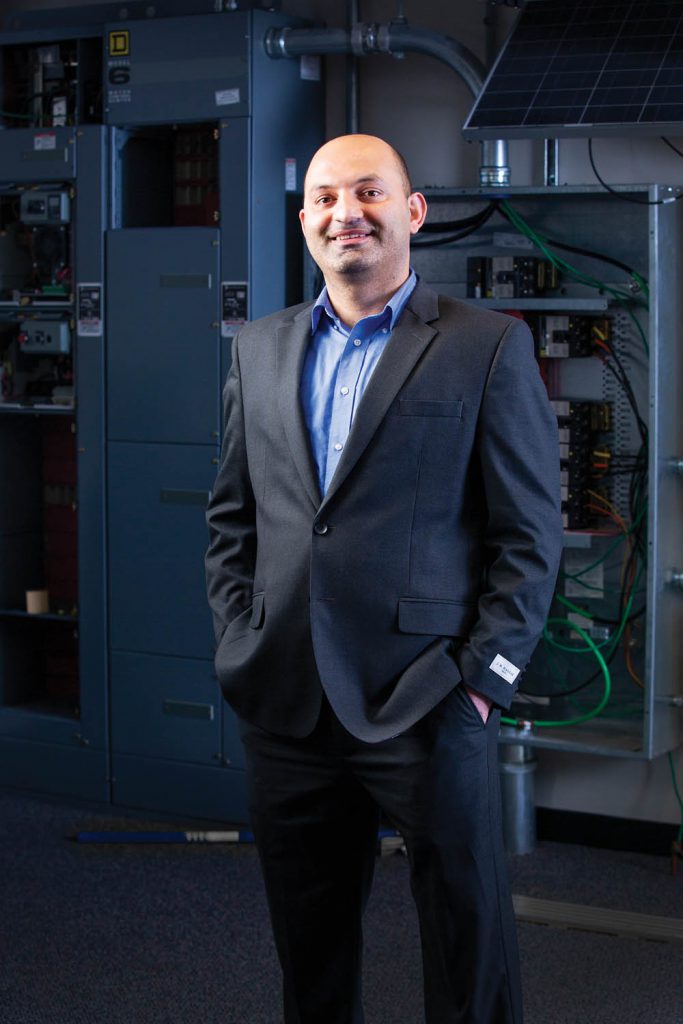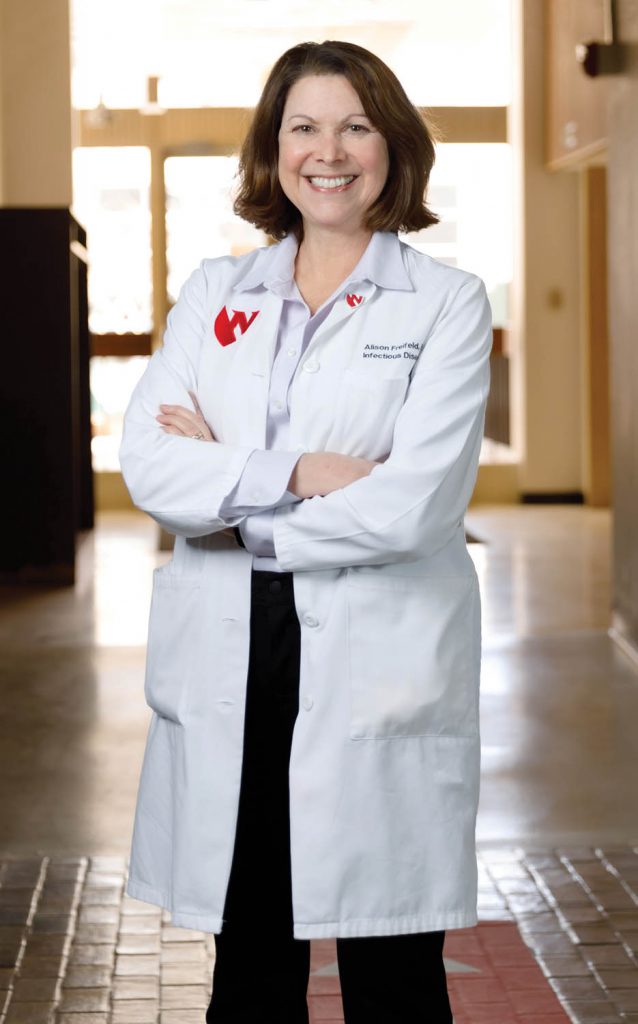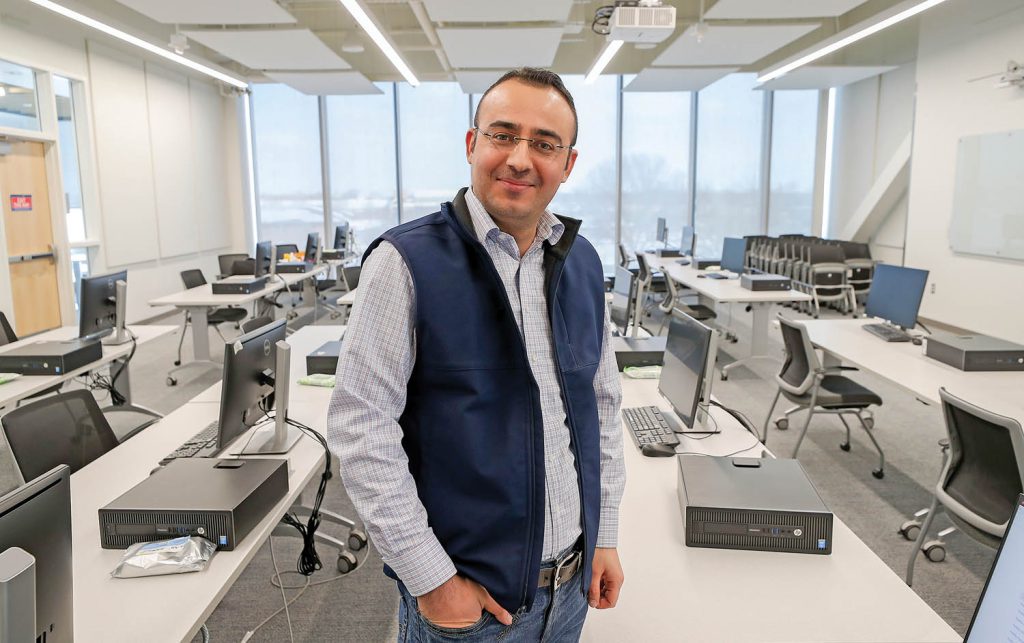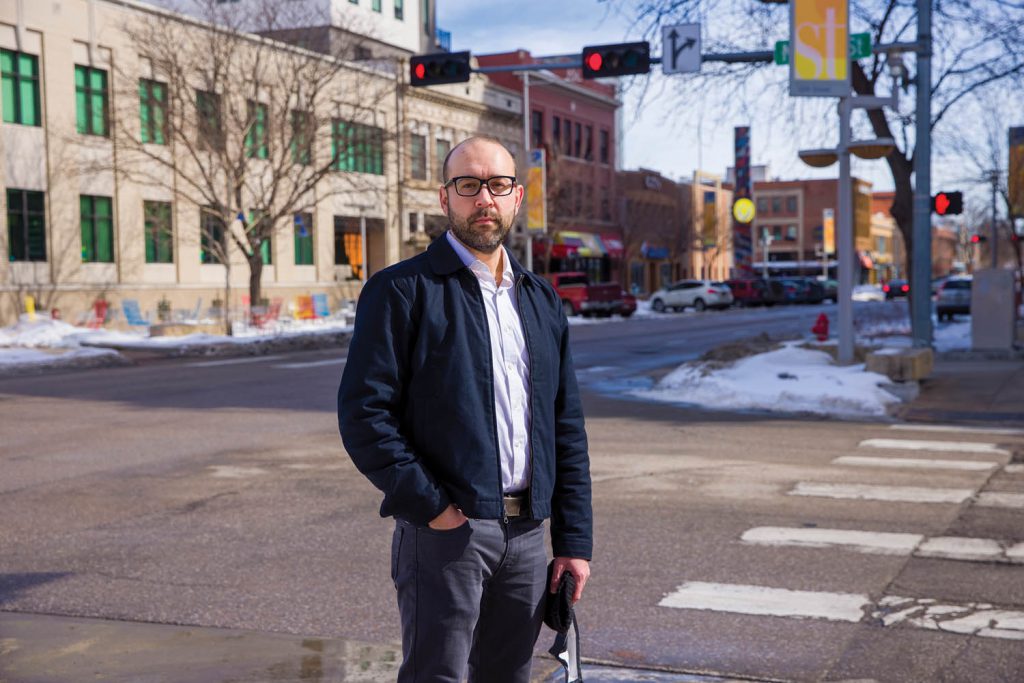A team of researchers from three University of Nebraska institutions was among the world’s best in developing an artificial intelligence-driven model to advise policymakers on how best to handle the COVID-19 pandemic. Their aim was to align medical recommendations with policy implementation.
The team was one of eight to receive an honorable mention in the $500,000 Pandemic Response Challenge run by the XPRIZE Foundation, which designs and operates incentive competitions to solve the world’s grand challenges. Nearly 500 teams worldwide entered the competition.
Fadi Alsaleem, UNL assistant professor of architectural engineering and an expert on big data analysis, had assembled the team to tackle another pandemic-related project: predicting outbreaks across the state. He was joined by Alison Freifeld, University of Nebraska Medical Center professor of internal medicine and infectious diseases expert; Basheer Qolomany, University of Nebraska at Kearney assistant professor of computer science and expert in deep learning in support of smart services and disease progression; and Dan Piatkowski, UNL assistant professor of community and regional planning.

Fadi Alsaleem 
Alison Freifeld 
Basheer Qolomany 
Dan Piatkowski
The team shifted its focus for the Pandemic Response Challenge, which aimed to harness data and artificial intelligence in equipping policymakers, health officials and business leaders with insights and guidance to implement public safety measures and safely deliver the COVID-19 vaccine, maximizing their ability to keep local economies open while minimizing potential virus breakouts.
The team’s work and data focused on Nebraska but it applied its model globally. “To apply the model across the whole world and see that it’s performing at least as well as other models is very gratifying. It was a good surprise,” Alsaleem said.
Initially, the Nebraska model was noted for its accurate, stable predictions about where outbreaks were likely. The team then expanded the model to help predict how government interventions – such as closing schools or recommending employees work from home – could affect caseloads. This data-driven approach proved useful for responding to the COVID-19 pandemic and could be implemented in future pandemics.
“I think one of the strengths in this team, and across the NU system, is how quickly everyone jumped on board and was ready to provide perspectives and expertise from their own disciplines,” Piatkowski said. “It’s certainly nice to be competitive against such impressive teams, but it also underscores our strengths in both scientific excellence and collaboration here in Nebraska.”
+ Additional content for Team Among World’s Best in Pandemic Challenge
Nebraska news release: NU team earns top 10 finish in Pandemic Response Challenge
